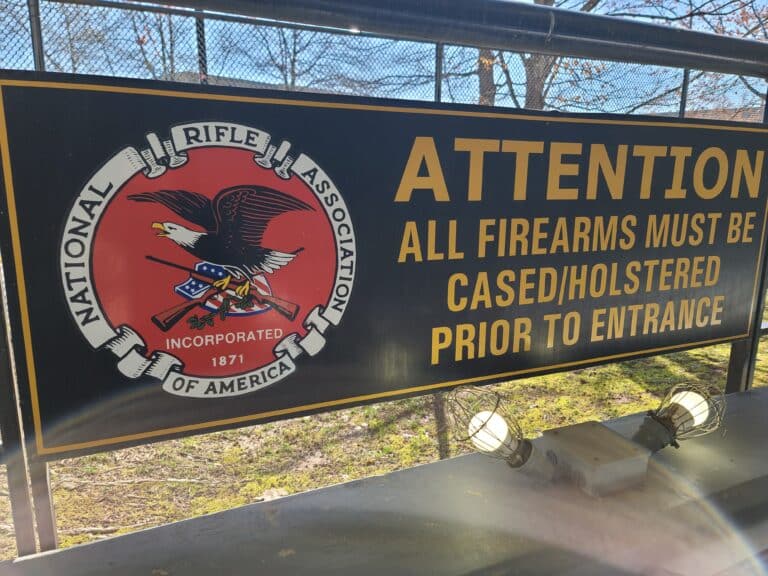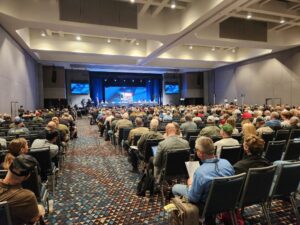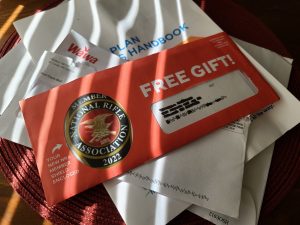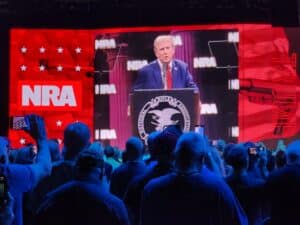Manhattan, New York — The National Rifle Association’s General Counsel testified on Tuesday he was hired without previous practice in the role and was left out of key decision-making.
John Frazer, the group’s top lawyer since 2015, said he got the job less than two years after becoming a lawyer. Although he had gained significant experience at the NRA in a previous non-legal role, Frazer admitted he never worked in a General Counsel capacity before being hired.
“So, when you became the General Counsel of the NRA, you had no prior experience at the job, right? For a for-profit or non-profit, right?” a lawyer for the New York Attorney General Letitia James’s office asked.
“Correct,” Frazer responded.
Frazer testified he was kept out of the loop on the gun-rights group’s most consequential legal decisions during his tenure. On topics ranging from negotiating LaPierre’s employment contract to the decision to take the group into bankruptcy and sue its top contractor, Frazer wasn’t consulted.
“You had not been told that the employment agreement was going to be the basis on which Mr. LaPierre would have authority to take the NRA into bankruptcy, right?” the AG’s lawyer asked.
“I don’t recall any discussion of a relationship between the employment agreement and a bankruptcy filing,” Frazer responded.
His testimony comes as the AG’s office tries to paint a picture of the NRA as an organization plagued by poor internal controls, which enabled insiders like CEO Wayne LaPierre to loot the group’s bank account. In the wake of LaPierre’s resignation, Frazer is the only individual defendant in the case who still holds any position in the group. How the judge and jury perceive his account will likely determine whether the AG succeeds in getting an overseer appointed to reform the group instead of merely ordering repayments for past misdeeds.
Much of the AG’s case that the NRA needs to be forcibly rehabilitated is built on the idea that the long list of financial abuses from the group’s past, from using charity funds for extravagant personal expenses to granting lucrative contracts to friends or family, could reoccur because the underlying dysfunction that allowed them to happen is still present. The NRA’s defense, spearheaded by outside law firm Brewer Attorneys and Counselors, has long been that malfeasance occurred but was dealt with appropriately via internal reforms.
Frazer’s testimony put Brewer at the center of the NRA’s legal strategizing rather than himself. He said the Brewer firm was the one who negotiated with LaPierre’s lawyer, a former Brewer associate, on his employment contract. Brewer was involved in the decision to take the NRA into bankruptcy, while Frazer was only told of it on the day of the filing.
Additionally, Frazer said he only found out the Brewer firm had been retained to coordinate its strategy in the bankruptcy case after the fact and by a Brewer lawyer–the same lawyer representing the NRA in the civil case. He also testified he was left out of the decision to file suit against Ackerman McQueen, with Bill Brewer representing the group against his father-in-law Angus McQueen’s company. And he acknowledged that Brewer had taken Ackerman’s place as the NRA’s top contractor after the two severed ties.
“During the period from 2018 to 2022, each and every year, the Brewer firm was one of the most highly compensated contractors for the NRA, right?” the AG’s office asked.
“That’s correct,” Frazer said.
“Between 2018 and 2022, the NRA reported in total paying the Brewer Firm over $100 million,” the AG’s office said. “Is that correct?”
“I haven’t sat down and added it up,” Frazer replied before conceding it was likely accurate.
Frazer testified he didn’t think there was any issue with the Brewer firm’s heavy involvement in the NRA’s legal struggles. He also defended the massive increase in legal spending the group had undertaken since the firm first became involved with the NRA. He argued that was a necessary result of defending the gun group from numerous legal attacks, including the New York Attorney General’s civil suit.
“The NRA was placed under attack on a whole variety of fronts,” Frazer said. “Basically, we were dealing with a lot of issues and, arguably then, the leading candidate for the AG’s office said that she was going to investigate us, called us a terrorist organization, and so on. Preparing for the possibility of what became this litigation is actually something that got us looking at course corrections.”
On what represented his last day on the stand for the AG’s half of the trial, LaPierre used his time to reiterate that many of the most extravagant expenses brought to light in the trial were justifiable costs of pursuing the NRA’s mission. He argued that many of the yacht trips and private flights that have drawn headlines were part of efforts to recruit either high-dollar donors or celebrity members, which he claimed were often successful. While defending a series of safari trips he took, LaPierre testified he didn’t fire a shot unless it was caught on film for a (partly unreleased) show the NRA was doing to bolster its credibility among hunters and, while the trip was “interesting,” he wouldn’t have taken it outside that purpose.
“To me, it was all business,” he said.
In what may end up being his last official act as the head of the NRA, LaPierre watched Frazer’s testimony.
In it, the NRA’s top lawyer defended his integrity. When asked if LaPierre had breached his trust when he failed to disclose his now-admitted use of NRA funds for personal expenses, Frazer said he wouldn’t characterize it that way.
“I think Mr. LaPierre has always been very open and honest with me in terms of communications that we would have and then trying to rectify the issues,” he said.
But, when asked if LaPierre breached the trust of NRA members, he took an agonized pause before responding.
“I’d have to say probably yes,” Frazer testified.
LaPierre walked slowly out of the courtroom–and the NRA–on that note.






